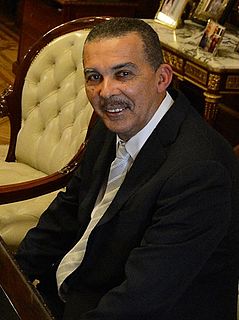A Quote by Mahathir Mohamad
When the people perceive that the print media is reporting what they believe is correct, then they tend to read the print media and to follow news on the television.
Related Quotes
Television and radio are what I call sequential media; they're not simultaneous media. With simultaneous media, you can scan your eye down an electronic or print page and pick among six or seven stories you might like and want to read. With television and radio, you have to wait until the guy's finished talking about the balloon boy, which I don't have the slightest interest in, to find out that all hell's broken loose in Baghdad. Because they've chosen that day to start with the balloon boy.
News at Work is a vivid, inside look at the collision of print journalism and electronic media. Based on close access to the leading news organizations in Buenos Aires, Boczkowski documents how contemporary journalism is caught in the grip of emulation; this spiral of imitation exacerbated further by global news media and their intensifying homogenization. The portrait of this transformation of the news is both fascinating and deeply worrying, and is guaranteed to provoke debate.
Media bias in editorials and columns is one thing. Media fraud in reporting 'facts' in news stories is something else. ...The issue is not what various journalists or news organizations' editorial views are. The issue is the transformation of news reporting into ideological spin, along with self-serving taboos and outright fraud.
You can't just repurpose old material created for one platform, throw it up on another one, and then be surprised when everyone yawns in your face. No one would ever think it was a good idea to use a print ad for a television commercial, or confuse a banner ad for a radio spot. Like their traditional media platform cousins, every social media platform has its own language.

































